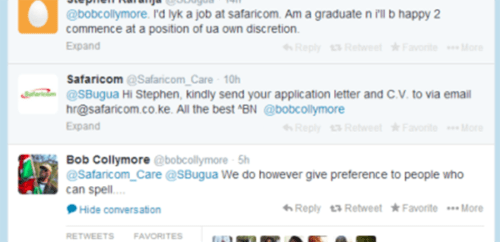-
3-minute read
-
28th March 2020
Do Spelling, Grammar and Punctuation Matter on Social Media?
The internet has not been kind to spelling, grammar and punctuation. On social media, for instance, it may seem like nobody cares about standard English. But should they? Do spelling, grammar and punctuation even matter on social media? Or is it a linguistic Wild West out there?
In this post, we look at the rise of non-standard English online. But we also look at when individuals and businesses should stick to standard English.
Spelling, Grammar and Punctuation on Social Media
With the number of people using social media, it’s no surprise that typos abound! But there’s also been a rise in deliberately ‘wrong’ English online.
For instance, many people avoid punctuation and capitalisation online. This isn’t because they don’t know when to capitalise words or when to use a full stop. It’s about creating an irreverent, jokey online voice.
The internet has also popularised emojis, abbreviations like ‘LOL’, and deliberate misspellings. It’s all part of how we communicate casually online (as compared to writing formally in an essay or business document).

So, while people do make errors on social media, not all non-standard spelling, grammar and punctuation is bad. Some of it is just how people talk on the internet! And as long as the people you interact with on social media can understand what you’re saying, non-standard English is fine.
Find this useful?
Subscribe to our newsletter and get writing tips from our editors straight to your inbox.
Subscribe to Beyond the Margins and get your monthly fix of editorial strategy, workflow tips, and real-world examples from content leaders.
When to Use Standard English on Social Media
Are there times when you should stick to standard English on social media? It depends on how you use social media and who might see it.
If you’re just posting for friends on a personal account that you don’t use for work, then go wild. People might not understand what you’re saying if you get too loose with spelling and grammar. But that’s your call!
When you’re posting from a business or professional account, though, be more careful. Non-standard spelling and grammar may come across as errors, suggesting an unprofessional lack of attention to detail. You can still be informal (e.g. using contractions, slang, or sentence fragments). But abandoning all punctuation may be a bit too much!
If in doubt, we suggest sticking to standard English when:
- Your business or organisation depends on a clear, respectable voice in communications (e.g. a government department or medical service).
- You use your account for professional networking or you’re looking for work (don’t forget that employers may check your social media when vetting candidates, so they could see what you say online).
However, this depends on the situation! If your company’s target audience is mostly young people, who often worry less about standard English, using non-standard spelling, punctuation and grammar in your brand voice may help you connect with followers. If you are being playful with English, though, make sure not to confuse or alienate potential customers!

(Image: 7Spell)




